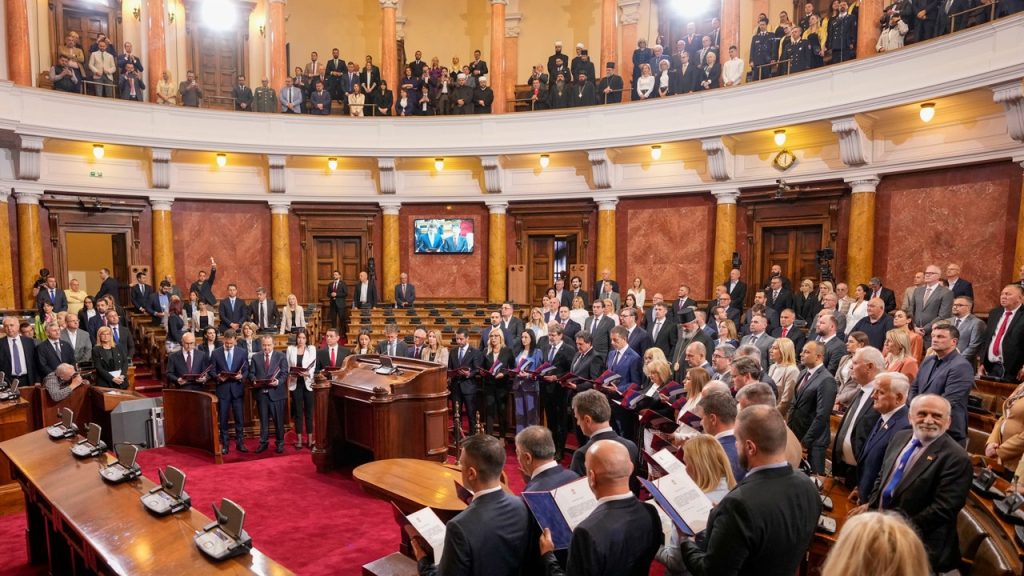In a 152-61 vote, Serbian lawmakers appointed a new government led by Prime Minister Miloš Vučević, who reinstated two pro-Russia officials, Aleksandar Vulin and Nenad Popović, who are sanctioned by the United States. The remaining 37 lawmakers were absent during the vote. The government aims to maintain close ties with Moscow, despite Serbia’s goal of joining the European Union. The vote followed a controversial two-day debate, with President Aleksandar Vučić’s ruling nationalist conservative Serbian Progressive Party holding a majority after an election in December with reports of irregularities.
The new government includes former intelligence chief Aleksandar Vulin, who has strong ties to Russia and has received medals of honor from Russian President Vladimir Putin. Nenad Popović, another Russia supporter, has faced U.S. sanctions for his involvement in illegal activities. The previous foreign minister, Ivica Dačić, will now be in charge of the Interior Ministry. Vučević, the new prime minister, reiterated that Belgrade does not intend to impose sanctions on Russia, while still expressing interest in maintaining good relations with the U.S. Integration into the EU remains a strategic goal for the country.
The composition of the new government has been described as a strategic move by security analyst Filip Ejdus, aimed at pleasing both the EU and Russia, as well as the domestic voter base. The U.S. imposed sanctions on Vulin for his involvement in illegal arms shipments, drug trafficking, and misuse of public office. Popović, a businessman with ties to the Kremlin, has been accused of enriching himself through his Russia-based businesses. Opposition lawmaker Radomir Lazovic criticized the inclusion of these ministers, stating that their actions have been harmful to Serbian citizens.
The West has been increasing efforts to integrate the Balkan region into its fold, fearing Russia’s influence and possible unrest in the volatile region. The Balkans, which experienced multiple wars in the 1990s, still face tensions. Serbia’s declining democracy record has hindered its EU integration progress. Reports of election fraud in December led to street protests and clashes. Despite Vučić’s authoritarian tendencies, the EU continues to engage with Serbia due to economic benefits and potential stability concerns if Serbia were to align more closely with Russia and China.













